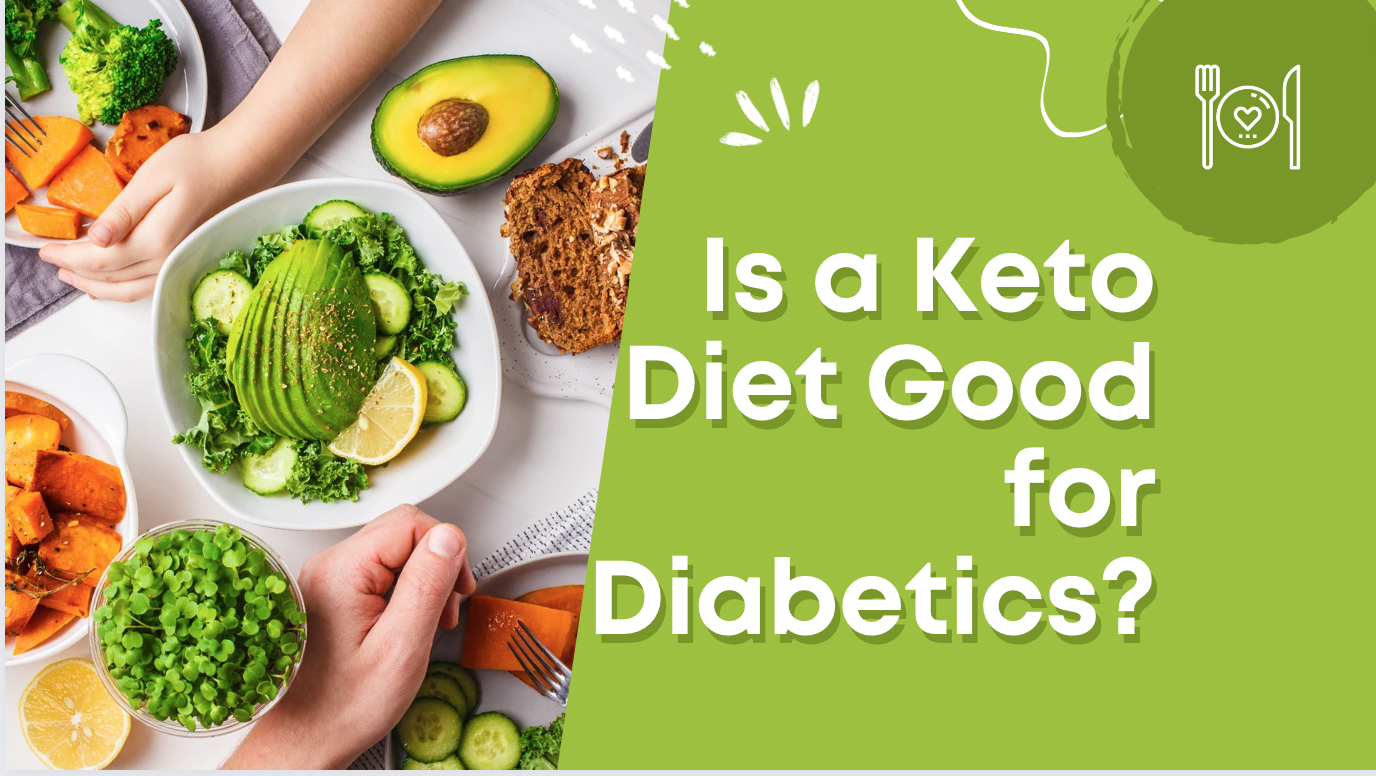Unlocking the Truth: Is a Keto Diet Good for Diabetics
Diabetes, a metabolic disorder marked by elevated blood sugar levels, has become a global health concern. With dietary management being a cornerstone of diabetes treatment, many have turned their attention to the ketogenic (keto) diet. This diet is characterized by low carbohydrate, moderate protein, and high-fat intake, pushing the body to burn fats rather than carbs for energy. But is a keto diet good for diabetics? This article will delve into the potential advantages and disadvantages of the keto diet for diabetics, supported by scientific evidence and expert opinions.
Benefits of a Keto Diet for Diabetics

The ketogenic (keto) diet, which involves reducing carbohydrate intake in favor of fats and moderate proteins, has gained traction in recent years as a potential dietary approach for managing diabetes. Here are some of the potential benefits of a keto diet for diabetics:
1. Improved Blood Sugar Control
The keto diet can lead to lower intake of carbohydrates, which directly reduces the amount of glucose entering the bloodstream. For many diabetics, this can result in more stable and predictable blood sugar levels.
2. Weight Loss
Many individuals on the keto diet experience significant weight loss due to fat being used as the primary energy source. For diabetics, especially those with Type 2 diabetes, weight loss can enhance insulin sensitivity and improve overall metabolic health.
3. Reduced Insulin Resistance
By limiting carb intake, the body often requires less insulin. Over time, this can improve insulin sensitivity, making it easier for the body to process glucose effectively.
4. Decreased Risk of Hypoglycemic Episodes
For those on insulin or certain diabetes medications, a reduced carb intake can lower the risk of blood sugar levels dropping dangerously low, which is known as hypoglycemia.
5. Reduction in Medication Needs
Some diabetics on the keto diet have reported reduced, or in some cases even eliminated, the need for diabetes medications due to improved blood sugar control. However, any changes to medication should be discussed with and supervised by a healthcare professional.
6. Enhanced Lipid Profile
The keto diet can lead to improvements in the lipid profile, including increased levels of high-density lipoprotein (HDL) cholesterol, which is beneficial for heart health, and reduced triglycerides.
7. Reduced Inflammation
Some studies suggest that a ketogenic diet might reduce markers of inflammation in the body. Chronic inflammation is linked to many complications in diabetes, so any reduction can be beneficial.
8. Satiety and Appetite Control
The high-fat content of the keto diet can promote feelings of fullness, helping to reduce overall calorie intake and aiding in weight management, which is crucial for diabetes control.
Considerations and potential risks of a keto diet
While the keto diet has gained popularity for its potential benefits in weight loss and blood sugar control, it’s important for diabetics to consider some key factors before diving into this low-carb, high-fat eating plan.
1. Diabetic Ketoacidosis (DKA) Concerns
For individuals with Type 1 diabetes, there’s a risk of developing diabetic ketoacidosis (DKA), a potentially life-threatening condition where blood becomes too acidic. The increased ketone production in the keto diet can, in some cases, contribute to this risk.
2. Nutrient Deficiencies
A strict keto diet might limit the intake of certain fruits, vegetables, grains, and legumes, potentially leading to deficiencies in essential vitamins and minerals, such as potassium, magnesium, and certain B vitamins.
3. Impact on Kidney Health
The increased excretion of waste products and minerals on a keto diet may put additional stress on the kidneys, which is especially concerning for diabetics who already have an increased risk of kidney disease.
4. Low Blood Sugar (Hypoglycemia)
For those on insulin or sulfonylurea drugs, a sudden reduction in carb intake can cause blood sugar to drop too low, posing a risk of hypoglycemia.
5. Long-term Sustainability
For some individuals, maintaining a strict low-carb, high-fat regimen may be challenging in the long term, which could lead to “yo-yo” dieting and fluctuations in blood sugar control.
Success stories of diabetics on a keto diet
Success stories of diabetics embracing the keto diet continue to inspire and generate hope among those struggling with their condition.
One such triumph is Adam’s journey—a thirty-five-year-old diabetic who dared to push the boundaries of his dietary choices. Initially skeptical, he decided to give the keto diet a shot after learning about its potential benefits for managing blood sugar levels. Within weeks, Adam noticed significant improvements in his insulin sensitivity and reduced cravings for unhealthy carbs. As he persisted with the low-carb, high-fat approach, his body adapted, leading to remarkable weight loss and a dramatic decrease in his HbA1c levels.
Another inspiring account comes from Sarah—a forty-year-old woman whose lifelong battle with diabetes left her feeling frustrated and defeated. After trying various diets that failed to provide lasting results, Sarah turned to keto as her last resort. To her surprise, not only did she achieve better control over her blood sugar levels but also experienced sustained weight loss without feeling deprived or restricted in food choices. The key breakthrough for Sarah was uncovering how embracing healthy fats and minimizing carbohydrates could transform not just her physical well-being but also enhance her mental clarity and overall energy levels.
It is evident from these success stories that diabetics who have adopted a keto lifestyle have witnessed transformative changes in their lives—the kind that exceeds mere weight loss or glycemic control alone. By shifting their dietary focus towards wholesome fats instead of relying on carbohydrate-heavy foods, individuals like Adam and Sarah discovered a newfound sense of empowerment over their health outcomes.
Final Thoughts
A keto diet can help diabetics control their blood sugar levels and improve insulin sensitivity. It does this by reducing carbs and increasing fat intake, which puts the body in a state of ketosis. This means the body uses fat as its main source of energy. This can lead to weight loss, less inflammation, and better control of blood sugar. However, it’s important for people with diabetes to talk to their doctor before starting a keto diet. They may need to monitor their blood sugar levels and adjust their medication. With the right guidance, a well-planned keto diet can be a helpful tool for managing diabetes and staying healthy.
FAQs
Should I consult my healthcare provider before starting a keto diet as a diabetic?
It is highly recommended to consult your healthcare provider before starting any new dietary regimen, especially if you have diabetes or any other medical condition.
What foods should I focus on while following a keto diet for diabetes management?
A ketogenic diet focuses on high-fat foods such as avocados, nuts and seeds, fatty fish, meat, eggs, and low-carbohydrate vegetables like leafy greens.







